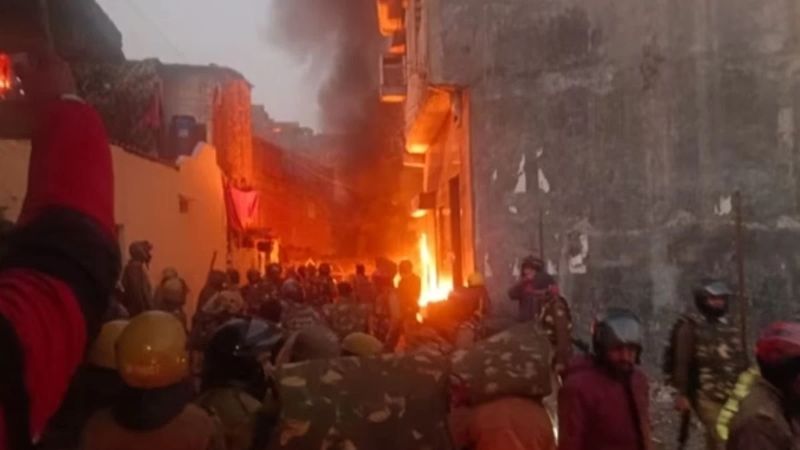The BJP-led government in the state of Uttarakhand has successfully garnered the majority of votes in favor of passing the Uniform Civil Code (UCC) in the Vidhan Sabha. The UCC’s agenda is to grant equal rights to everyone, irrespective of their gender, religion, or caste, extending to ensure complete freedom to practice their own religion. The UCC does not impact the rituals or religious practices of an individual but rather grants equal rights to all, in accordance with the constitution of India. The UCC is applicable to people of all religions, including Hindus, Muslims, Christians, Buddhists, Jains, Parsis, and others.
However, following the passage of the UCC in the Vidhan Sabha of Uttarakhand, Muslims came forward and engaged in communal riots, attacks on security and administrative personnel, and physical assaults on police personnel.
The Uttarakhand government has observed a significant increase in the Muslim population over the past few years, with a substantial portion comprising Rohingya Muslims and illegal Muslim migrants from Bangladesh. A majority of these individuals reside in slums, tents, and huts. Additionally, they acquire government-issued identification cards, such as Aadhaar cards, as well as electric and water connections, often with the assistance of local political leaders who supported them during elections.
In the recent riots, it was discovered that many Muslims had come from different states to actively participate in the unrest, indicating a well-planned event. The district magistrate of Haldwani mentioned in a news report that, a few days prior, aerial investigations revealed no stones on any houses. However, during the stone-throwing incidents, it was evident that the stones had been collected recently.
The attack on security and police personnel is not merely a law-and-order issue; it constitutes a direct assault on the sovereignty and integrity of India. The government of India must take immediate action to safeguard the nation’s sovereignty and integrity. Both the central government and the state government of Uttarakhand should take appropriate measures against those attempting to take the law into their own hands. Furthermore, the government is authorized to deploy weapons if necessary to maintain order and security.
Leaders of several political parties, whose majority of voters are Muslims, are opposing the Uniform Civil Code (UCC) and have condemned its implementation. Not only political leaders but also Muslim organizations and their leaders have issued threats to the governments of India and Uttarakhand, making provocative statements against non-Muslims and the government. According to these leaders, the implementation of UCC would jeopardize the rights of Muslims and their ability to practice their religious beliefs. They express a desire to adhere to the Quran and the practices outlined in their religious book.
Ironically, this stance raises several serious questions. For instance, according to Islamic law, if someone is caught stealing or identified as a thief, their hand should be cut off. Strangely, the self-proclaimed Muslim leaders and religious figures advocate following Islamic law only in civil matters, while supporting punishment aligned with the Indian Constitution in criminal matters.
It should not be overlooked that certain political leaders, driven solely by the intent to safeguard their vote bank, lend support to illegal migrants and those who incite communal riots, especially in areas predominantly inhabited by Hindus. This is particularly significant in a country where the partition was conducted along religious lines, distinguishing between Hindus and Muslims. During the partition, a large number of people lost their lives during the migration. Despite the religious basis of the division, some political leaders permitted certain Muslims to remain in India.
Subsequently, during the period of emergency, Prime Minister Indira Gandhi added the word “secular” to the preamble of the Constitution of India. This move was not only contrary to the sovereignty of India but also perceived as an abuse of power.

